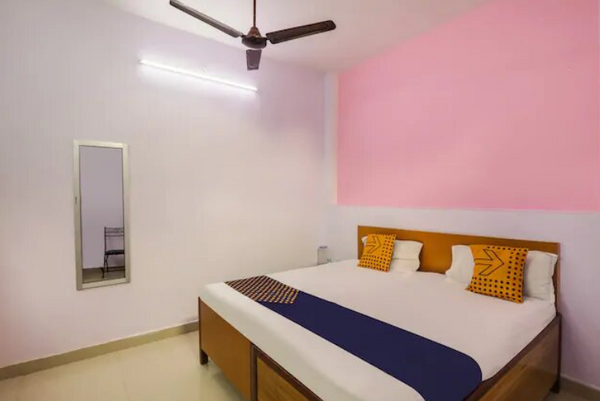Why Houston Startups Are Going Custom: The Strategic Rise of Tailored Mobile Apps in 2025
 Martin Dye
29 Jul, 2025
16 mins read
9
Martin Dye
29 Jul, 2025
16 mins read
9

In 2025, Houston’s startup scene is not just booming—it's evolving with intent. From energy tech to healthcare and logistics, founders in this diverse city are realizing that generic digital solutions no longer cut it. To compete in a fast-scaling ecosystem, they’re turning to custom mobile applications—designed not only to solve niche problems but to offer experiences users can’t find elsewhere.
Whether you’re a founder with a validated MVP or just mapping your go-to-market strategy, understanding the strategic shift toward custom mobile development is crucial. Partnering with a reliable mobile app development company in Houston or exploring niche-specific services could be the very thing that differentiates your startup in a crowded market.
Let’s unpack why custom apps are becoming the default route for Houston startups—and what this means for your 2025 roadmap.
Houston’s Startup Landscape: A Diverse Innovation Ground
Unlike Silicon Valley's software-first culture, Houston startups are grounded in real-world applications. Think energy logistics platforms, IoT-integrated health devices, AI-driven fleet management tools, and personalized healthcare assistants. These businesses require apps that don't just work—they must integrate deeply into physical infrastructure, use cases, and regulatory systems.
This demand for complexity and personalization is what’s fueling the pivot away from off-the-shelf solutions. Founders are no longer looking for “just an app.†They need a tailored user experience, backend architecture that scales, and deep integration with third-party platforms and APIs—all delivered fast, without compromising quality.
Why Off-the-Shelf Isn’t Enough for Houston Startups
Off-the-shelf apps can be great for early experiments, but they rarely align with the unique workflows and branding most Houston startups require. Here’s why they often fall short:
- Lack of Customization: Pre-built templates can't accommodate startup-specific user journeys, logic, or security protocols.
- Integration Issues: Most pre-built solutions don’t play well with complex backends like SAP, AWS IoT, or healthcare APIs like Redox.
- Scalability Constraints: As startups scale, cookie-cutter codebases tend to break down—leading to platforming costs.
- Limited Ownership: With proprietary SaaS platforms, founders often don’t own their codebase or data.
That’s why building custom from the ground up—whether for Android, iOS, or cross-platform—is becoming more than a technical decision. It’s a long-term growth investment.
Custom iOS Apps: UX-First Design That Builds Loyalty
Houston’s healthtech and fintech founders are especially leaning toward iOS-first development when targeting enterprise users or premium markets. Why? Because Apple’s ecosystem offers better privacy controls, higher ARPU (average revenue per user), and seamless hardware-software integration for devices like Apple Watch and iPads used in clinical or field environments.
But more than that, iPhone users tend to expect flawless, frictionless design—and custom iOS apps deliver just that. Features like Face ID authentication, native Wallet support, and Siri Shortcuts can’t be replicated well in generic cross-platform tools. That’s why startups offering specialized iPhone app development services are thriving in sectors like:
- Telemedicine
- Mobile banking
- On-demand logistics
- AI-based diagnostics
A custom iOS experience can directly translate to better user retention, higher conversions, and stronger brand differentiation.
Faster Go-To-Market with Agile, Not Generic
One of the myths around custom apps is that they take too long. But Houston’s top product teams are disproving this by combining agile sprints with low-code backends, CI/CD pipelines, and modular architecture. This enables faster MVPs, real-time user testing, and continuous iteration—all while retaining full customization.
Instead of choosing between speed and quality, startups are asking:
“What’s the fastest way to build a better product—not just the fastest product?â€
With the right development partner and strategic discovery phase, custom doesn’t mean slow anymore.
Custom Security Architecture = Better Compliance
For Houston startups in regulated industries like healthcare, energy, and finance, security isn’t a feature—it’s a requirement. Off-the-shelf solutions often lack:
- End-to-end encryption
- HIPAA, SOC 2, or FINRA compliance support
- Role-based access controls
- Secure DevOps pipelines
Custom mobile apps allow startups to bake in these protocols from day one, instead of patching them later. This means faster compliance, reduced legal risk, and smoother investor due diligence.
Real-World Success: Houston Startups Doing It Right
1. MediNav: Personalized Healthcare in Your Pocket
Built entirely as a custom iOS app, MediNav allows patients to access personalized care plans, schedule lab tests, and even receive AI-powered symptom triage. Their investment in custom design and native Apple HealthKit integration helped them secure $5M in seed funding within 8 months.
2. RigTrack: Oilfield Management Reinvented
Serving the upstream oil sector, RigTrack replaced paper-based tracking with a custom Android + web app. Built to function offline in remote sites and sync securely once connected, this custom solution increased field efficiency by 47%.
3. Fleetify: AI Logistics for Last-Mile Delivery
This Houston-based startup built a custom cross-platform app that integrates real-time GPS, predictive ETAs, and AI route optimization. Off-the-shelf wouldn’t cut it. Their user churn dropped by 32% post-launch.
Budgeting for Custom Apps in 2025
Houston founders are increasingly building modular budgets, not one-shot builds. That means:
- MVP Phase: $25K–$60K for core features (auth, dashboard, integrations)
- V1 Launch: $60K–$150K depending on platform(s), animations, logic, etc.
- Post-Launch Scaling: $10K–$30K/month in updates, monitoring, and optimization
- This model gives startups room to learn, pivot, and scale without breaking the bank.
Choosing the Right Dev Partner in Houston
Once you've decided to go custom with your mobile app, the next mission-critical decision is choosing a development partner who can turn that vision into a functional, scalable product. This isn’t about finding just any mobile app development company —it’s about aligning with a team that gets startups, understands your runway, and moves at your pace.
A good portfolio only scratches the surface. You need to vet their depth in startup product strategy. Do they understand user behavior, MVP launch cycles, and the iterative nature of building a tech-driven business? Can they advise on product-market fit—not just lines of code?
Ask whether their team is equipped to grow with you. Can they evolve your MVP into a stable V1 and eventually support post-Series A scaling, user base expansion, and data infrastructure needs?
Equally important is technical fluency. Your chosen team should be adept in both iOS and Android ecosystems and understand how to optimize for device-specific design guidelines, performance nuances, and OS-level security features.
Then there’s breadth. A strong app partner offers more than engineering—they provide UX/UI design, product strategy, backend architecture, and even go-to-market consulting. In other words, they’re not just developers; they’re startup enablers.
Houston has no shortage of talented developers. But finding one that blends deep technical expertise with startup sensibility is what separates a successful app from a stalled prototype. Choose a partner who’s aligned with your vision, timeline, and ambition.
Looking Ahead: AI, Voice, and Wearables
Mobile app development in 2025 isn’t just about delivering value now—it’s about building a flexible digital foundation that supports what’s next. Founders who prioritize forward-compatible architectures today will be the ones seamlessly adapting to the technologies of tomorrow.
AI is already redefining user experience expectations. From hyper-personalized content feeds and intelligent chatbots to dynamic pricing models, machine learning has moved from novelty to necessity. Designing apps with AI in mind means laying the groundwork for integrations like TensorFlow Lite or on-device inference engines.
Voice interfaces are another leap. With Siri, Alexa, and Google Assistant integrations becoming commonplace, apps that can support voice commands and natural language understanding will win user engagement across multitasking environments—whether in a car, kitchen, or on the go.
Wearables aren’t just a fitness trend anymore—they’re a growing market in health, productivity, and logistics. Smartwatches, AR glasses, and even biometric trackers open new frontiers in app interaction. Apps with native wearable support are already outperforming counterparts in healthtech and field services.
Then comes spatial computing and AR. Apple Vision Pro and other spatial devices are signaling a new era of mixed-reality interfaces. Whether you're in medtech, e-commerce, or enterprise training, building for AR now—or at least planning for it—can be a long-term differentiator.
Final Thoughts
Houston startups are no longer asking “Can we afford to go custom?†Instead, they’re realizing:
“We can’t afford not to.â€
Custom mobile apps unlock agility, brand ownership, security, and user experience that no SaaS platform or no-code tool can replicate at scale. Whether you’re entering a regulated industry, creating a B2B platform, or just chasing product-market fit—custom gives you the flexibility to build a product your users actually love.
So if you’re planning to launch or scale a mobile-first product in 2025, consider starting with a strategy-first, design-focused approach—because when you own your product, you own your future.
Written By:
Martin Dye



Hotels at your convenience
Now choose your stay according to your preference. From finding a place for your dream destination or a mere weekend getaway to business accommodations or brief stay, we have got you covered. Explore hotels as per your mood.





